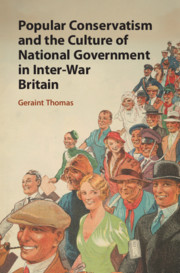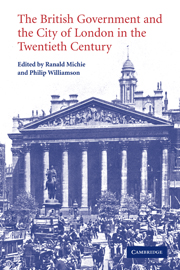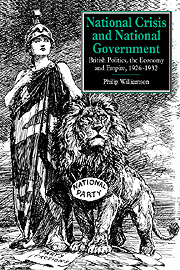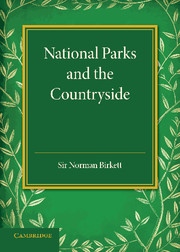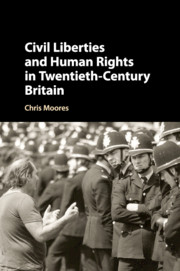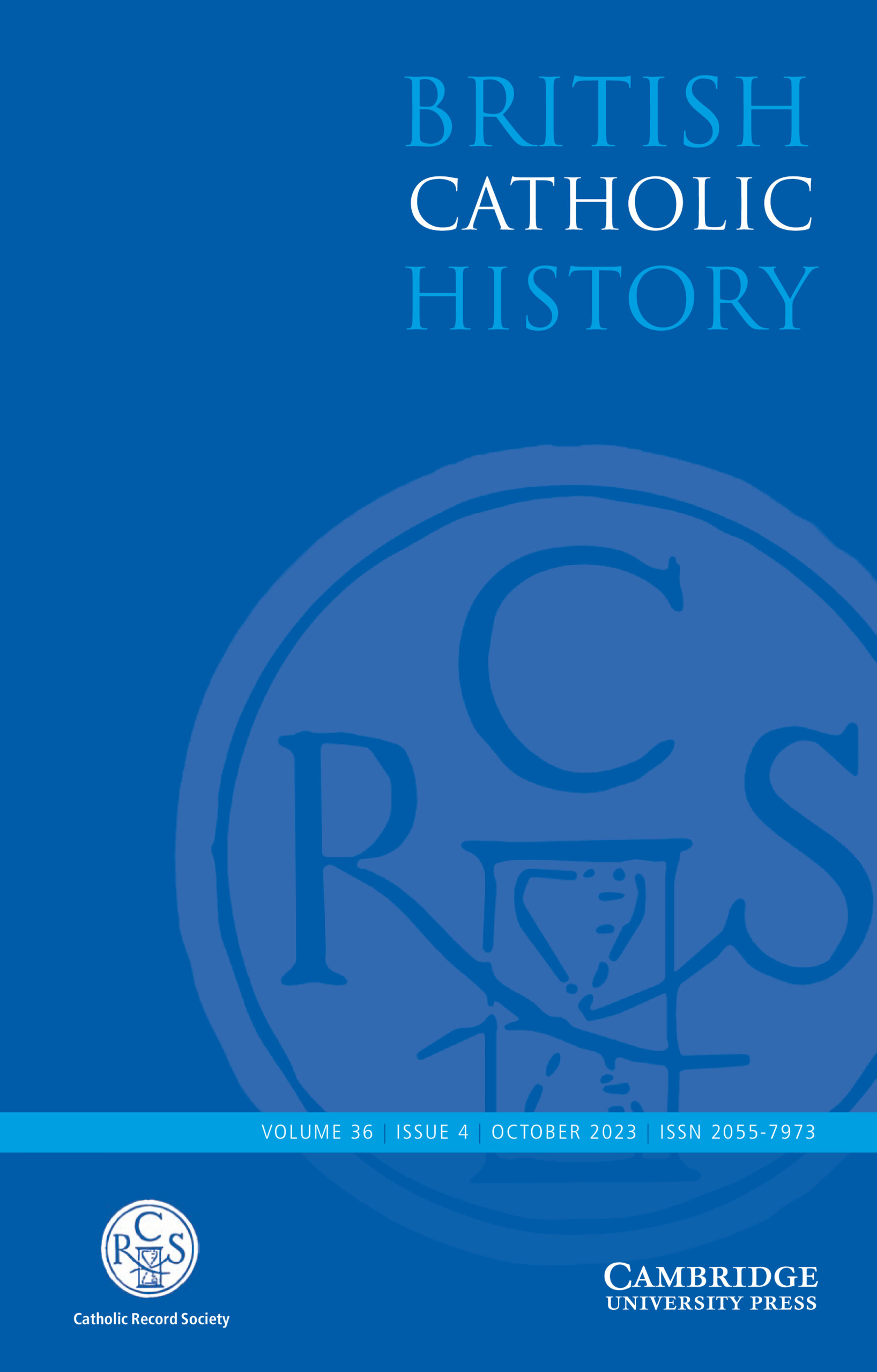Popular Conservatism and the Culture of National Government in Inter-War Britain
- Author: Geraint Thomas, Peterhouse, University of Cambridge
- Date Published: November 2020
- availability: Available
- format: Hardback
- isbn: 9781108483124
Hardback
Other available formats:
eBook
Looking for an inspection copy?
Please email [email protected] to enquire about an inspection copy of this book
-
This radical new reading of British Conservatives' fortunes between the wars explores how the party adapted to the challenges of mass democracy after 1918. Geraint Thomas offers a fresh perspective on the relationship between local and national Conservatives' political strategies for electoral survival, which ensured that Conservative activists, despite their suspicion of coalitions, emerged as champions of the cross-party National Government from 1931 to 1940. By analysing the role of local campaigning in the age of mass broadcasting, Thomas re-casts inter-war Conservatism. Popular Conservatism thus emerges less as the didactic product of Stanley Baldwin's consensual public image, and more concerned with the everyday material interests of the electorate. Exploring the contributions of key Conservative figures in the National Government, including Neville Chamberlain, Walter Elliot, Oliver Stanley, and Kingsley Wood, this study reveals how their pursuit of the 'politics of recovery' enabled the Conservatives to foster a culture of programmatic, activist government that would become prevalent in Britain after the Second World War.
Read more- Shows for the first time how the fortunes and character of popular Conservatism differed by region and locality, and explains how and why – despite their suspicion of coalitions – the Conservatives championed the cross-party National Government of 1931-40
- Places the work of government on domestic policy and economic management at the centre of inter-war popular politics and the study of political culture
- Explores the contributions of important Conservative figures, including Neville Chamberlain, Walter Elliot, Oliver Stanley, and Kingsley Wood
Reviews & endorsements
'This deeply-researched study provides important new perspectives on the Conservative Party and the National Governments during the critical decade of the 1930s. It will be essential reading for anyone interested in British history between the two world wars.' Stuart Ball, University of Leicester
See more reviews'Geraint Thomas's book is a very significant addition to the political history of interwar Britain. Its discussion of the National Government, and particularly the relationship to it of the Conservative Party's membership, as well as its leaders, convincingly undermines, or substantially modifies, much of the existing historiography of the period.' Ross McKibbin, University of Oxford
'… well written, fully referenced and extensively researched … it is a scholarly and valuable contribution to the study of inter-war electoral politics.' Roland Quinault, Cercles
Customer reviews
Not yet reviewed
Be the first to review
Review was not posted due to profanity
×Product details
- Date Published: November 2020
- format: Hardback
- isbn: 9781108483124
- length: 320 pages
- dimensions: 240 x 160 x 30 mm
- weight: 0.81kg
- availability: Available
Table of Contents
1. The National Government and Interwar Conservatism: the Historical Task
Part I. Rethinking Interwar Conservatism:
2. Local politics and the limits of Baldwinite Conservatism, 1918-1931
3. Conservatives and the Politics of National Recovery, 1931-1937
Part II. Popular Conservatism and the National Government:
4. Anti-Socialism and Working-Class Conservatism in the Industrial North
5. The Politics of Anti-Socialism in the Suburbs
6. Modernity and Paternalism in Rural Politics
7. National Conservatism in Scotland and Wales
Part III. Reputations of Government:
8. The Unravelling of National Anti-Socialism?
Conclusion.
Sorry, this resource is locked
Please register or sign in to request access. If you are having problems accessing these resources please email [email protected]
Register Sign in» Proceed
You are now leaving the Cambridge University Press website. Your eBook purchase and download will be completed by our partner www.ebooks.com. Please see the permission section of the www.ebooks.com catalogue page for details of the print & copy limits on our eBooks.
Continue ×Are you sure you want to delete your account?
This cannot be undone.
Thank you for your feedback which will help us improve our service.
If you requested a response, we will make sure to get back to you shortly.
×
